BLOG
SLUSH Endeavor Side Event: Local Stories, Global Successes | Transcript
By Endeavor Greece
Dec 13, 2024
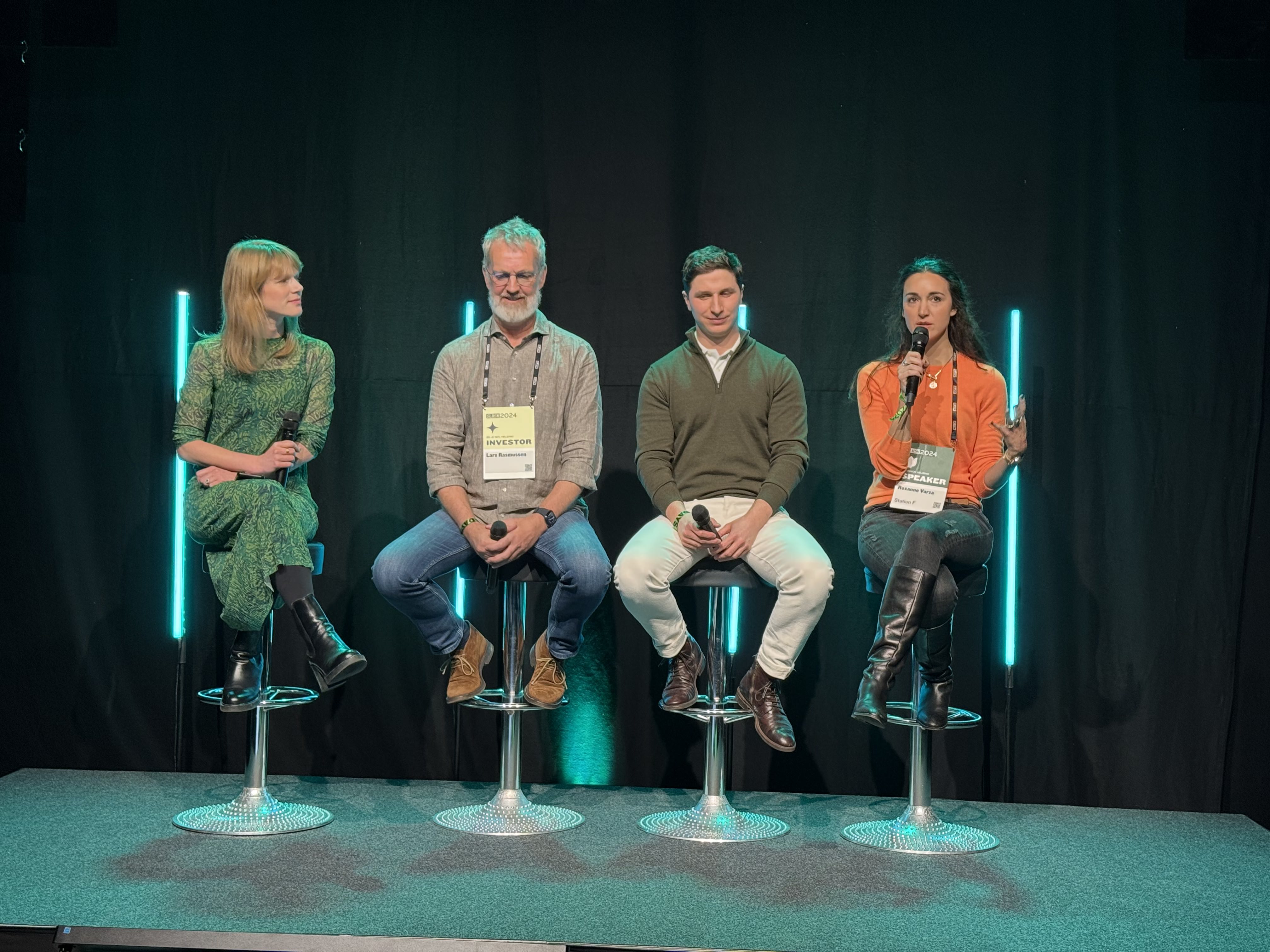
SLUSH Endeavor Side Event
Periklis Vasileiadis: At Endeavor we’re big believers that high impact founders can transform local economies and those guys are exactly what Endeavour exists for. So for the second panel as our work to also build technical systems in emerging markets who have brought together three people that have been transformational in their local markets and have made them global success stories. So for the second panel, I would like to welcome on stage Rafal Modrzewski, the Co founder and CEO of ICEYE and Endeavor Entrepreneur, Roxanne Varza, the director of Station F and Mr. Lars Rasmussen, the Co founder of Google Maps and Super Angel Investor. The panel will be moderated by Amy Lewin, Editor at Sifted.
Amy Lewin: Hello everyone, I'm Amy. I'm the editor of Sifted. We cover European startups and we worked with Endeavour on the report that you can see on all the tables. So please have a look at that. I'm sure you can take them home and read all about what's going on in the Greek ecosystem. I'm going to make this short. I'm going to keep talking fast because I'm sure you want beer and we're already running late. I hope that's OK with my panel and the lovely people at Endeavour. So I'm not going to introduce you. I'm instead going to say, can you please tell us the big idea behind your company? But very, very briefly, like a super, super quick pitch to me first. Yeah.
Roxanne Varza: All right. Hi, everyone. Great to be here. My name is Roxanne. I'm the director of Station F in Paris. To make it really quick, we're big. We have 1000 start-ups in our space. The idea is to power the early stage ecosystem and startup creation. Was that short enough?
Rafal Modrzewski: Fantastic. Hello everybody, my name is Rafal Modrzewski. I'm the CEO of ICEYE and our idea was to democratize access to herb observation data. We were building and we are building a network of small satellites that allows everybody, you included, to observe any place around the world at any time.
Lars Rasmussen: Hi everyone, I'm Lars Rasmussen. I helped Co found Google Maps more than 20 years ago. So you have to remember back before the iPhone, when the web was a document viewing platform with hyperlinks and MapQuest ruled the mapping online. And we wanted to make maps online bigger, faster and prettier so that they could be a platform for all kinds of cool information.
Amy Lewin: Amazing. So all of these companies and organizations, big deal. Now, was there a moment when it was kind of not really going so well and then, I don't know, you made a great hire, you landed a great deal or you pivoted that really helped things take off?
Lars Rasmussen: Yeah, so many, several. I give talks now about how you should not give up, but you have to again, think 20 years back. So the stock market had just crashed spectacularly. The NASDAQ lost 80% of its value. It took 12 years for it to recover. And that's when we started, my brother and I, what became Google Maps. And honestly, the first time I really wanted to give up was the first time after six months of building with no money, we went to pitch 5 or 6 VCs in Silicon Valley, and we didn't even get a call back. And we were completely broke and miserable. And to be perfectly honest, the only reason we didn't give up was that no one was hiring. Like, we literally went to look for jobs, but everyone was laying off left, right and center, so we might as well continue how things get.
Amy Lewin: Thank you on behalf of everyone for not giving up.
Rafal Modrzewski: I guess a similar story on our end, you know, we had a series of successes when it comes to receiving money. We started, it was just the two of us. First we got the €5000, we were very excited. Then we got €50,000. We were, we were super pumped. Then we managed to secure a €2 million grant from the Finnish government, which we're extremely grateful for. That helped us go through quite a lot of R&D early stages and that's when we started looking for venture capital and that turned out to be much harder than I thought. You know, we were in Finland, we were building satellites that were new. Finland is not Silicon Valley as we were just talking about, you know it actually we are not as successful as we hoped in the grand run out. It literally ran out 1st of January 2015. We were out of money and we didn't have any more money. And I remember very vividly when I had to stand in front of the team of 15 engineers that I was hiring for the last two years and I said, look, there is no money. And as such, we won't be paying your salaries. We think there is a customer around the corner. And I was Exxon Mobil. So it was a bit of a risky one. We believe they will sign. They might sign tomorrow. They might sign in six months. They might never sign. I'm going to continue. That guy's going to continue. And I really want you guys to all continue with us. But everybody's decision is here. You know, I'm proud to say that the old state, they are still with the company and we pushed through six months later, actually three months later, Exxon signed and then we managed to raise some money.
Roxanne Varza: I'm in a bit of a different situation than these two, but if the question is, did I ever want to give up? No, absolutely not. We've had tons of crazy things happen at Station F, but I think we've been really fortunate that we've been powered by this great momentum and enthusiasm in the ecosystem, and it's kind of been really collective. So we've really had this great energy from our launch. But to give you guys an idea of some of the crazy setbacks and errors and mistakes, a lot of people don't know this, but Station F was actually supposed to open in April 2017. We opened in June because of a massive flood that actually went 3 levels underground and a lot of our technical infrastructure was there. We all thought, this is over, we're never going to open the building. We opened it. Three months later, President Macron was elected. It was kind of a magical moment. And in one week, I had to onboard 1500 people. And we discovered because we were in such a rush to get people in the building, our outlets didn't work, our Internet didn't work. It was just like a disaster. But people are in a good mood. And so we just kept going. But it was really, really hard to get things actually to a point where they're working the way you want them to work. So everybody that is working on hardware in the room. I, I feel your pain. We can talk about it later.
Amy Lewin: And what about a moment where things went really in the right direction rather than wanting to give up, running out of money, you know, no one employing you. What was a moment where you were like, oh shit, this might actually work?
Rafal Modrzewski: I think starting a startup is definitely in running. It is such that the lows are very low and the highs are very high. And you know, you, you get those sad moments and you have to, you have to persevere, you have to push through. I feel like there's more of those difficult ones, but, but there are the good ones that come. I think for us, the huge time was when we've actually pivoted a little bit when we were going to do it first is we're just going to launch our satellites, own them and operate purely a service. So there was no way for you to actually own a satellite. That's not the case anymore. There was a moment in time when we, when we sat down, said, look, there's, we are getting so many inbound requests from customers that they want to own the satellites and they want to operate them themselves in a sovereign way. And this is actually what we are known for today. And we decided to, to recreate the market offering and the product offering. And we said, all right, let's, let's start selling the satellites. And I remember when we signed our first large customer, you know, for a company that started from nothing, this was the 1st $35 million contract that was huge. I remember that it was actually the Brazilian government. This just proves that there are no borders when it comes to startups. The Brazilian government ordered 2 satellites from us. We were a company that it was just starting. That was this huge vote of confidence. And I thought to myself, well, we've Brazilian government. If we can convince the Brazilian government to buy satellites from us, just Sky's not the limit anymore.
Amy Lewin: Can you remember how you celebrated?
Rafal Modrzewski: Yes, I do. I do, I do because we wanted to, you know, we wanted to get everybody a bottle of, of, of, of, of sparkling wine. Not exactly everybody, but we wanted to get a bunch of them so that we would, we would have the office celebrate. And I think the order went in wrong and instead of like 20, we ended up having 200. So I had this card full of champagne bottles running around the office handing them out to people that I feel like some of them are still there.
Lars Rasmussen: Well, yeah, so you probably know that Google bought my little startup when we were just about to go completely, completely bust about what, 6-9 months after my first almost giving up. And yeah, that was that was the moment when I rocked up to Google and got my Google badge and, and.
Amy Lewin: But how did that happen? Google doesn't just just rock up one day and offer you money, does it?
Lars Rasmussen: Not entirely, no. So no, no. So we were trying to raise money. Remember the market had just crashed and we were just these two Danish brothers with no sense of direction pitching map store everyone. And we failed to raise money. We got close as in one big VC almost and I I say this, I know this. They told us we were at 70% in their funnel and then we dropped out at the 30% mark, but everyone heard about it. No one was going to touch us, but then someone that we had just demoed to happened to be on Google's board. And when we were in tears, called this guy up and asked for advice, he said, well, you should go and sell yourself to Google because they have nothing in mapping. And there was, you know, this was around the time when Google was every year before going public. And so two days later, we were sitting in front of Larry Page and then wearing our tech.
Amy Lewin: Roxanne, what was a really big turning point for Station F?
Roxanne Varza: There have been so many, but I think probably one of the biggest moments where we're like, Oh my God, what we're doing is actually serving our companies was when Hugging Face. Hugging Face is one of our unicorns. And I think it was the first one to become a Unicorn. They raised a huge 100 million round. They became a Unicorn that day. And we were like, what? We remember those guys when they were sitting over there and they were struggling with their like B2C model. And now Sequoia is backing them and everybody wants to fund these guys. And we were just like, that's incredible. Like, you know, they were just here. And I think that was a pretty big moment. And I think we celebrate a lot of our startup, the wins that we have with our companies because I think they don't. People forget, we read about so many rounds of funding in the press, but actually the early days are a struggle. And we see it every day on campus, our small teams showing up trying to figure out how we get a customer, how we build a product. So those those moments we really celebrate
Amy Lewin: Hopefully this won't be too cliche, but you, I don't know about you, but you're you two are big Angel investors, Rafael, you also dabbling in that. Not a big one, not a OK, OK, OK. So you work with a lot of other early stage founders. What, what characteristics do the ones who are just like super tenacious and really keep going and like, you know, run out with money or their basement gets flooded and it just, you know, goes off their back
Roxanne Varza: Yeah. I mean, I would, I would say you kind of summed it up actually. There's I think it's almost a fine line to walk between being too stubborn and not hearing feedback and hearing feedback but being able to filter out what's relevant because I don't always think the feedback that everyone gives founders is always necessarily stuff you need to consider. So I think there is a specific amount of stubbornness and that we actually see people have passion, people who deeply love the problem they're solving and not their product can't repeat that enough. The number of people who've come to just really pitch their product and forget about the issue that they're solving is kind of ridiculous. And people who surround themselves, well, I think I care a lot about who has gotten excited, who's jumped on board, who they hired, who's funded them, who's backed them? What kind of, you know, just who's who's going for that and execution? I think people who can go fast, we really like that.
Lars Rasmussen: Yeah. So look, my, my Greek goddess wife and I are Angel investors and we've done it for maybe 10-15 years on the side now. It's our main gig, our best performing investment. Obviously one of our early ones, Canva in Australia, does online design software. And it's actually, it's quite relevant to the discussion we're having here about can you build world disruptive companies from, well, Helsinki, obviously. But in this case there was a young romantic couple, a boyfriend, girlfriend out of Perth, Australia, a town well known for its mining industry. Not your obvious choice. And I think the key, the key quality, I think this is what you call stubbornness. Like I like to call it pathological optimism because they never, not once asked themselves, is it possible for a young couple out of Perth, Australia to build a world disruptive company in, in the field of design. On the contrary, they were again pathologically convinced. In fact, I remember back then Adobe completely dominated, like it had monopolized digital design. And, and I remember asking Melanie when she was pitching this, this product, she, I was like, have you, have you heard of Adobe? And she said, Oh my God, yes, they suck. And we're going to do so much better. In fact, we're going to build the number one most valuable company in the world. And I said, you mean the most valuable design company in the world. And she was like, no, no, no, I mean, the most valuable company in the world when they hit $40 billion valuation before the macro sort of little downturn a few years ago, they very much like they, they, they literally did a call to all the investors and they're, they were like, OK, so the most valuable company today is this company. And we're now at 40 billion. So we're 1% of the way there with dead seriousness. And in fact, to the question earlier in the previous panel about Europe versus America, it is definitely true that there are some structural things and so on. And by the way, if you haven't signed the petition for EU Inc, please, please, please do. It's an amazing, amazing effort. But I think overwhelmingly, what's holding Europe back relative to America is attitude. The fact that we're having this conversation in the 1st place is a good symptom of that, right? Because no one in America asked themselves, Gee, is it possible for this American entrepreneur to build a world disruptive come? Of course it is, right? Like we should learn, if nothing else, from America, we should learn that pathological optimism. We should start by renaming all our national sports championships to be the World Series, right? Because that's, that's how Americans think. And you know, the, an American saying, in fact, like if you ask yourself that question, if you're an entrepreneur or investor looking at an entrepreneur, is it possible for these kids out of some European town to build a world disruptive startup? And, and the truth is that if you or they think the answer is no, they're absolutely right about that. But if they pathologically think the answer is yes, they might also be right about that. And I think actually I'm thrilled to be in Finland here. I think we should all adopt the finish model. I have never before seen a systemic attempt and successful one of really changing the mindset of a whole nation by doing things like Slush, by doing things like the student-led incubators and by just like over and over and over telling the story of yes, indeed, it is possible, right? But it was also possible before I saw another company that showed it was possible.
Roxanne Varza: Pathological optimism is beautiful.
Amy Lewin: And you're all in different ways working with governments or affected by policy and regulation and different parts of the world. How do you think you know? What do you think about that and how do you deal with that when stuff suddenly changes or Trump gets re-elected?
Rafal Modrzewski: I guess I will take this one since I was silent the previous one. I mean, look, this is a deep question for us because we are naturally linked to, to the government situation, geopolitical situation just due to the fundamental nature of the dual use technology that we produce. When you think of satellites and imaging capabilities and you realize that you can use the satellite to image a flooding event anywhere around the globe, regardless of when it happens, when it happens at night or or through clouds, you can see that too. You realize that the same system can image things related to defense or security and can help you decide whether you are under threat or not as a nation. And that ultimately has changed, I say massively over the last 24 months. And I think, yeah, I was just speaking about it at the other stage. I mean, we see such a massive change in the whole way the startups and the focus around space tech, defence tech, deep tech generally is, is emerging from something that used to be at least in Europe, a little bit off the table. I remember raising money in Europe 10 years ago against space, against space tech. That was a very rare thing. People didn't feel like they wanted to invest. SAS, yes. Anything higher, deeper than that, maybe not too much risk.
I'm glad to see that this is changing. But you know how we adapt? I have to say we have to adapt every day. We are changing the policies every day. We are looking at what's happening in the last 24 months. The war in Ukraine itself has been crazy, but all the other events around the world, which have made the geopolitics so much more complex. It's, it's challenging. But I guess you know, as long as you as a founder and the company is agile and you remain agile and you keep that agility in as, as part of your, your culture's DNA, then you can make those, those left and right pivots when the time is right. And I think that's what kept us going.
Roxanne Varza: I think we pay attention a lot to the geopolitical situation. We've been impacted a lot by it positively. Surprise, surprise, previous Trump election, Brexit coincided with the launch of Station F, the arrival of Macron, people looking maybe away from traditional ecosystems to found their companies. Where do they want to go? France kind of got a chance to play at that moment. And so we saw a lot of international entrepreneurs come to Station F. Today, we have 65 nationalities at Station F. I Think we've also tried to reinforce the areas where we feel France and Europe are well positioned to lead. So we're a generalist campus, we have 1000 companies in 30 different programs, but we've decided to double down on AI, climate related technology and quantum. There's a lot, a lot of resources and a lot of regulatory frameworks that could bolster some companies in Europe in that space. And AII feel that France's ecosystem is becoming very tight knit. They've started to bring people that they've worked with, and attract them to Paris. So there's a really great momentum there. So I think, you know, with the new Trump election, what we'll have to see. I don't think they've communicated a lot around the immigration policy. We'll have to see what happens. But in the past, we've paid a lot of attention to it. And so we tend to try to navigate where we feel that we have an opportunity to lead and we adjust for what happens elsewhere.
Amy Lewin: Awesome. I have one more question. We've got a little bit of time for questions from you, if anyone has one. Surely these three awesome people I can barely see from the blinding lights. Yeah.
Question 3: My name is Johan, entrepreneur, startup founder and now also helping other startups and new innovations to the markets. You've all faced that and I can say that all startup founders have faced bad moments. So what is your advice from your perspective to those who face bad moments or struggles today? What is your like mentoring advice?
Roxanne Varza: Tempted to quote Churchill. When you're going, when you're going through hell, keep going. No, I, I really think the best advice is just surround yourself, talk about it, talk with people. The solution is talking, talking it through. I think for a lot of entrepreneurs, it can be very, very lonely. We see people try to solve problems in their corner that usually do not work. So I would say definitely there's a lot of entrepreneur groups out there. I think a lot of founders are willing to share their experience, reach out to people if you're not part of a group, but I would say don't try to. Don't try to go for it alone.
Rafal Modrzewski: I mean, you know, I can, I can share about what we've done. So there's two things. One, I can, and this is not a product placement, but I can recommend, you know, when we were starting, we got a book which is the 'hard things about hard things'. There's actually a chapter there about how to go through a difficult moment. And it's a good chapter. It's a well written chapter. And I've actually shared those. I think it's like 6 pages with a bunch of friends of mine that were going through a difficult time and they were like, oh, what do we do? What do we do that the chapter really doesn't say much, but you know, just keep on pushing. But it's well written. Look, it's, it's easier after you've done this once. And that's what people say. I mean, you learn based on your own mistakes or your own experiences. I think it's critical that you learn from the experiences of others, especially if you're an entrepreneur. That's this moment when you know the pathological stubbornness has to turn into the ability to listen to others and and listening is good, but believing in what they are saying is probably even more important. I have heard from others that you know when the times are rough, if you keep pushing, sooner or later they will change. That has proven true for us. You never know when exactly it will turn around, but I can tell you that I think every single time it turned around faster for us than we thought it would. So if anything, I can share with you guys, you know, we have been there. We have gone through that rough patch more than once the second time we already knew that. You just have to keep on pushing and then the sunrise will come.
Lars Rasmussen: Yeah, I don't have a lot to add to that. Those are great answers. Personally, I have this mantra that it's better to have tried and failed than to not have tried at all. And I am much older than I look at 56, but I still have to remind myself of that a lot. Like back to the attitude question, I think fear of failure is what holds us back dramatically, and I did. It's a little bit incorporated in a culture. I don't think we should celebrate failure, mind you, but we should definitely celebrate people who are willing to try again after failing.
Amy Lewin: OK, final thing from me then is if you were going to build something new today, what space would it be in?
Lars Rasmussen: Tech event, just like Slush. I mean much better than Slush in Athens, Greece, which happens to be the beautiful city that I live in.
Amy Lewin: It's like from one temperature extreme to the other.
Rafal Modrzewski: That was a prepared answer. This is, look, I guess everybody and I always think that people ask me what should they do? Like how, if they want to start a company, which, and then, then what sort of company they should start. And I have to say that I never know what to tell them because it's not exactly like I know what sort of company somebody else should start. It's, it's always something that you love that will help drive this, this perseverance in you. If you don't love the problem that you're about to solve, if you are not deeply, deeply committed to it internally, I think it's going to be hard for you to, to find that inner power to, to push through. So, you know, I build satellites. I'm an inventor by heart. Like I know that, you know, I love my Lego blocks. I still still do. I was thinking about this several times. I think that I would go into the VTOL space, the vertical takeoff and landing vehicles. I'm just tired of traffic, that's all.
Amy Lewin: And that area does need some help.
Roxanne Varza: Well, if I would, if I had a great startup idea, I think I'd be building it right now. Guys, No, I absolutely love working with a variety of entrepreneurs. Everybody has such amazing energy ideas. I mean, I think I meet like 10 people with brilliant ideas minimum per day. So that's what powers me and keeps me going. But I do get, I do get tempted. I talked to people at Station F. We have a great partnership with EF Entrepreneur First. Maybe there's people in the room who've been through the program or talk to people who've done it. And those people are always so energetic when they finish the program. And so it's, it's a bit infectious sometimes. But I think what I really like is watching how entrepreneurship evolves, how the needs of entrepreneurs evolve and how we adapt to it. And there was a discussion, I think there was a question in the previous panel about Europe versus the US. And I love seeing how Europe is really optimistic moving forward, building, not, not in this kind of like, oh God, look, but really trying to solve. And I think that's a great momentum we need to keep up. That doesn't answer your question, Amy, about what I would build. But when I come back, I'll pitch it to you when I have that idea in the future.
Amy Lewin: Roxanne has spent a lot of time with politicians and learnt how to dodge a question. Thank you so much for such brilliant energy at the end of Slush.
People Involved :
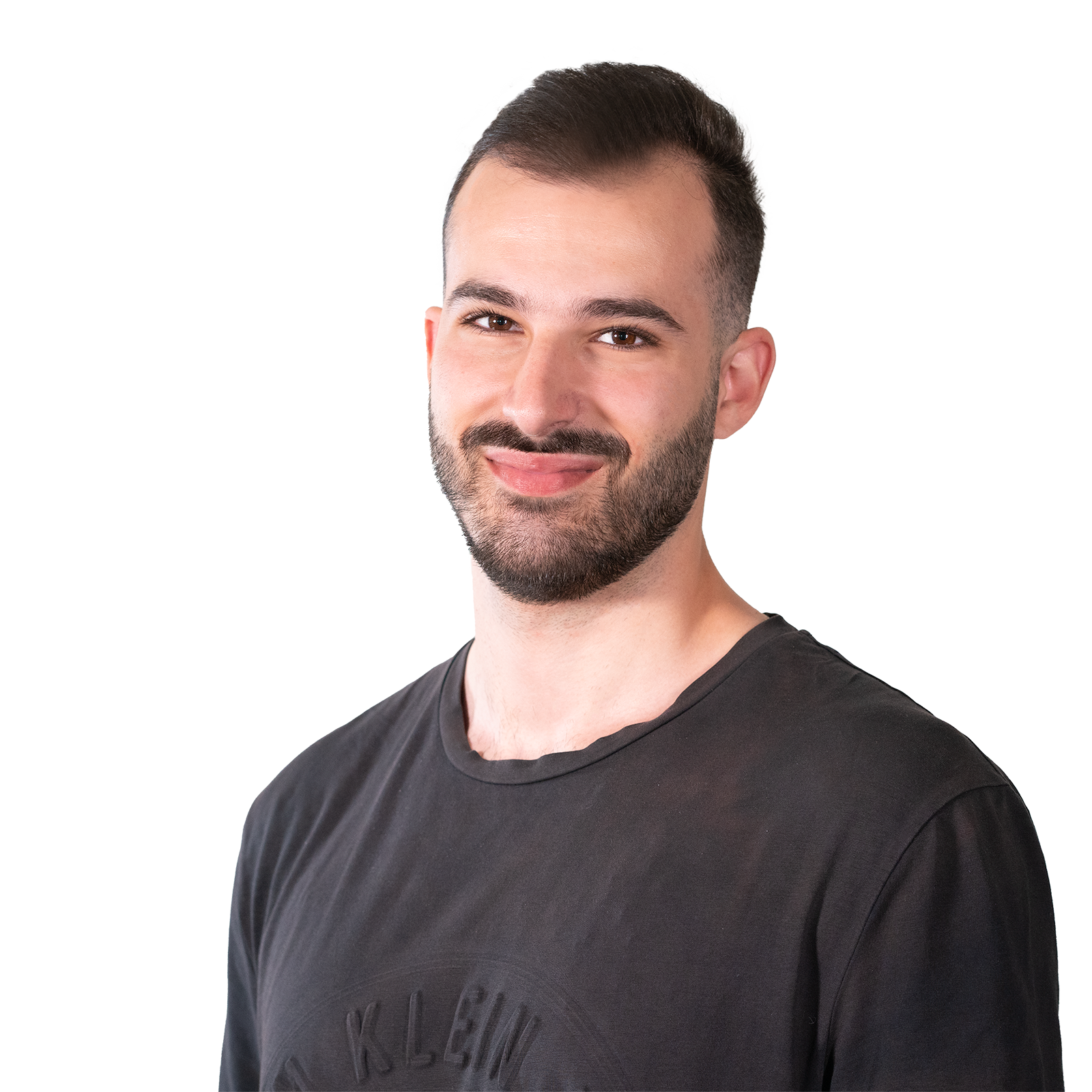
Periklis Vasileiadis
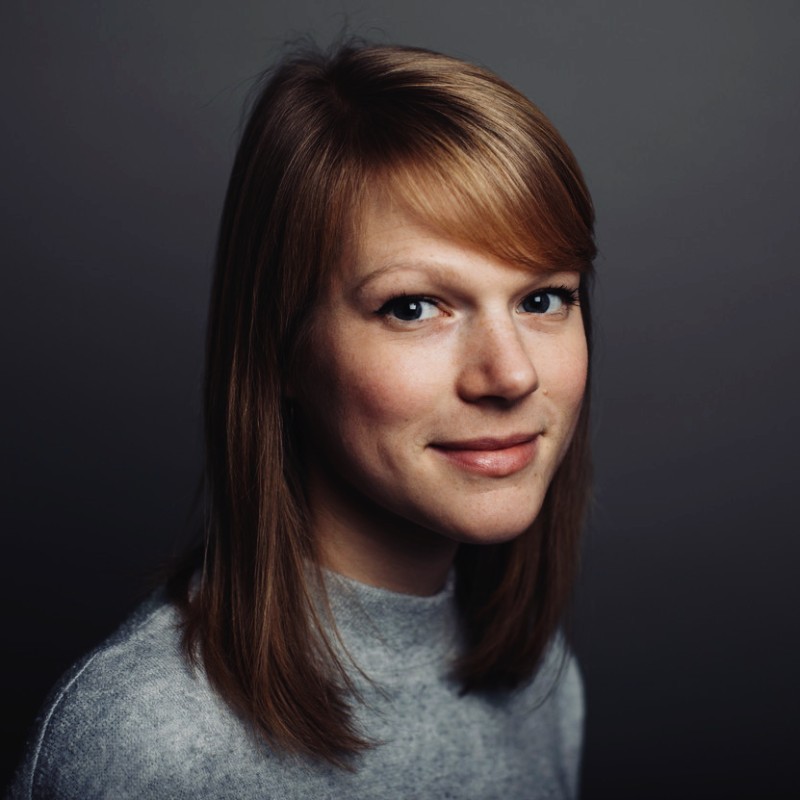
Amy Lewin
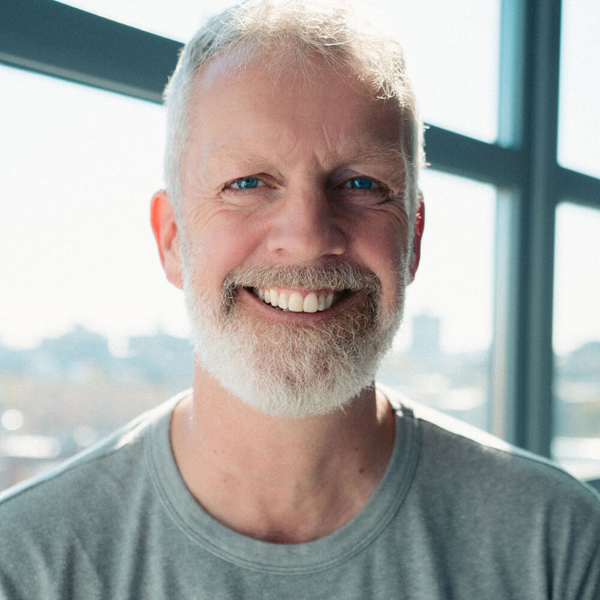
Lars Rasmussen
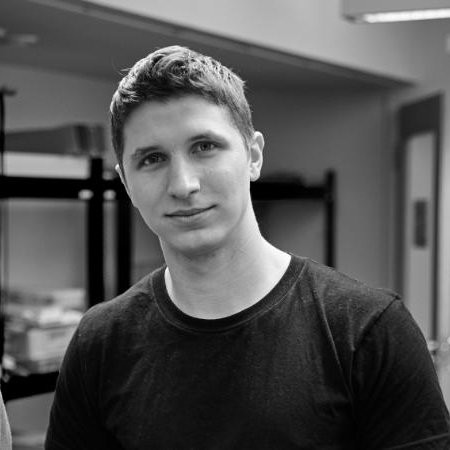
Rafal Modrzewski
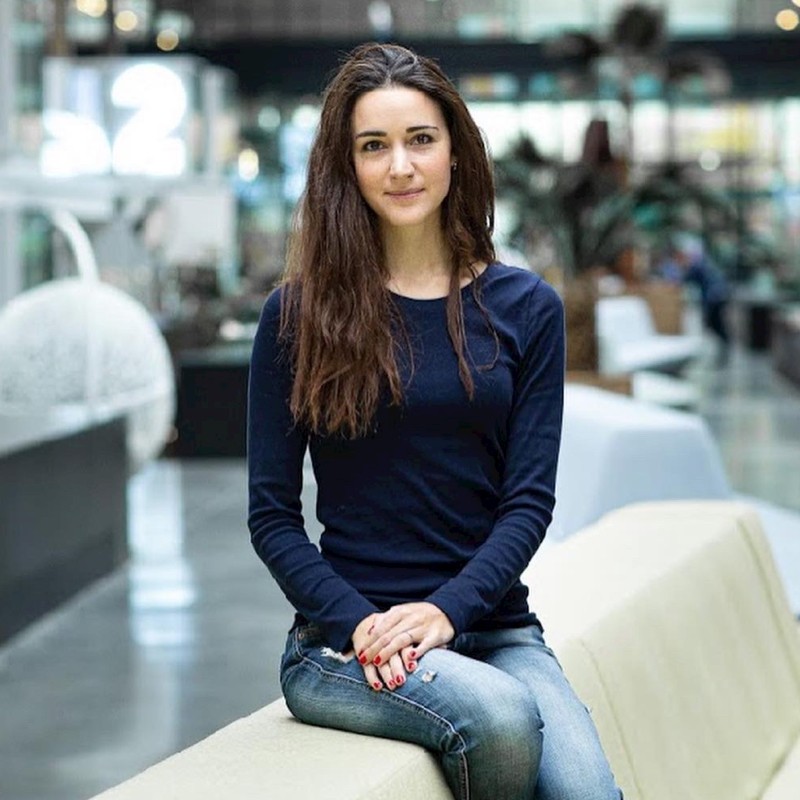
Roxanne Varza